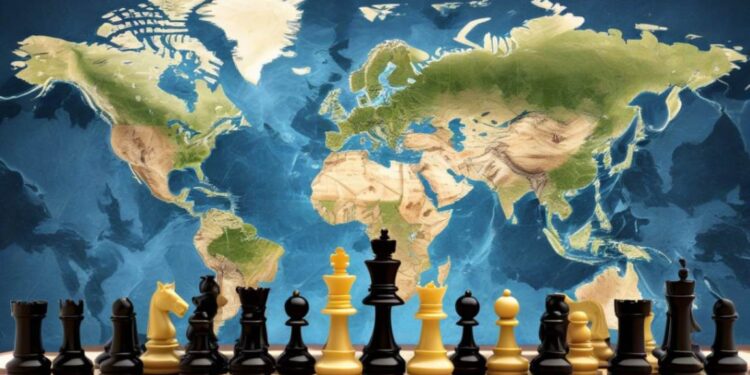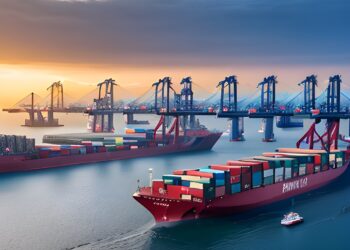As the India election year with PM Modi seeking third term in office, one area where its impact has been undeniable is foreign policy. This transformation is increasingly recognized both within India and on the world stage, evident in bold new approaches, strategic partnerships, and a growing influence on global issues. Modi’s vision for India is multifaceted, encompassing economic development, strategic alliances, and an assertive presence on the global stage. In this reimagining, India seeks to position itself as a key player in shaping the geopolitical landscape of the 21st century.
As India continues to navigate the complexities of the geopolitical landscape, let’s look at the key aspects:
Reimagining Geopolitics
Neighborhood First and SAGAR are emblematic of the Modi government’s shift towards stronger regional engagement. Initiatives like Quad and I2U2 showcase India’s willingness to actively counterbalance major power dynamics and pursue its interests on the world stage. This proactive stance, distinct from a policy of hedging, has earned India respect as a responsible development partner, a First Responder in times of crisis, and a voice for the Global South.
Navigating a Turbulent World
India’s rise coincides with an era of unprecedented volatility and competition among major powers. The Modi government has responded with optimal positioning vis-à-vis these centers of power, leveraging opportunities without compromising its independent policy and action. Remarkably, despite witnessing numerous leadership changes in key partner nations, India has fostered consistently positive trajectories in these partnerships.
Realigning the Global Economic Landscape
The COVID-19 pandemic exposed the vulnerabilities of a hyper-concentrated globalized economy. In response, India is actively pushing for reliable and resilient supply chains through initiatives like Make in India, PLI schemes, and Gati Shakti. Prime Minister Modi’s foreign policy prioritizes exploring global opportunities, building domestic strengths, absorbing technology and best practices, and creating jobs – all factors crucial for navigating the economic landscape of the future.
The Digital Imperative
Our increasingly digital world underscores the need for trust and transparency, particularly regarding critical and emerging technologies in communication, mobility, energy, and health. As the knowledge economy faces demographic constraints, India’s vast talent pool becomes a powerful asset. Building trusted collaborations and making informed technology choices are therefore of paramount importance.
A Global Citizen
Recognizing the global nature of the modern workplace, the Modi government has concluded numerous mobility agreements and ensured fair treatment for Indian professionals and students abroad, even offering timely assistance during crises, as exemplified by the Vande Bharat Mission and Operations Ganga and Kaveri.
Influence Beyond Power
India’s growing influence transcends its economic and military might. It stems from the power of its ideas and initiatives. On issues like climate action, counter-terrorism, connectivity, maritime security, financial inclusion, and food security, India has proactively shaped discussions and outcomes. Initiatives like the Coalition for Disaster Resilient Infrastructure, the International Year of Millets, and Lifestyle for Environment (LiFE) are testaments to this active engagement.
Leading by Example
India’s global influence derives significantly from its own domestic policies and delivery. When the country ensures digital public goods, plugs leakages, promotes renewables, encourages energy efficiency, produces vaccines at scale, and creates massive safety nets, it offers valuable examples for others to follow.
Sharing is Caring
India’s willingness to share has garnered global appreciation. Vaccine Maitri, which made India a vaccine source for nearly 100 countries, created immense goodwill. Over 600 development projects across 78 nations further demonstrate India’s commitment to internationalism. Finally, India’s emergence as a First Responder in disaster situations like the recent earthquake in Turkey highlights its growing capabilities and willingness to help.
Expanding Diplomatic Footprint
India’s expanding diplomatic footprint reflects its growing interests. While key partners require intensive engagement, others deserve attention as well. The frequency and breadth of high-level interactions have been widely welcomed by India’s partners, from immediate neighbors like Sri Lanka and Nepal to the Gulf region, Africa, Europe, and Latin America. Creating collective formats with the Pacific Islands, Caribbean community, Nordic nations, and Africa has further enhanced the efficiency of this outreach.
Securing its Borders
Foreign policy begins at the borders, and here, the transformation has been most dramatic. A generous and non-reciprocal approach towards immediate neighbors has been accompanied by vastly improved project delivery. Consequently, regionalism in South Asia is experiencing rapid strides, with new road, rail, waterway connectivity, power grids, fuel pipelines, and border crossing facilities emerging. These infrastructure improvements are complemented by arrangements facilitating the flow of goods and services, while a shared response to the COVID challenge has further strengthened regional solidarity. India’s support for Sri Lanka during its economic crisis also resonated strongly.
Balancing Development and Security
While development has undeniably been a cornerstone of Prime Minister Modi’s vision for India, the nation has also decisively addressed emerging national security challenges, particularly in the context of border tensions. Modi’s administration has adopted a robust and proactive stance, bolstering military capabilities and deploying forces strategically in key border areas. This approach not only serves as a deterrent to potential adversaries but also underscores India’s preparedness to respond effectively to any external threat.
In conclusion, as India marks a decade under Prime Minister Modi’s leadership, the transformation in its foreign policy and global standing is unmistakable. The strategic initiatives undertaken, from reimagining geopolitics through regional engagement to navigating a turbulent world with adept positioning among major powers, showcase India’s assertive role on the global stage. The realignment of the global economic landscape and a digital imperative underscore India’s commitment to adapting to evolving challenges.
Beyond economic and military prowess, India’s growing influence emanates from its ideas and initiatives, exemplified by proactive engagement on crucial global issues. As the world witnesses India’s multifaceted growth, it becomes evident that the nation, under Prime Minister Modi’s stewardship, is shaping its destiny as a responsible and influential global player.








